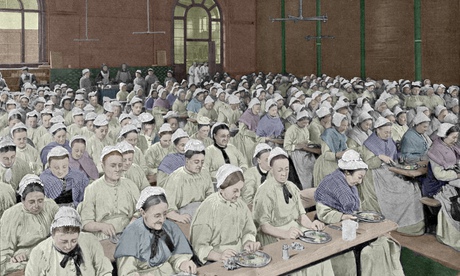
Alison Light’s evocatively written Common People: The History of an English Family may well inaugurate a new genre of non-fiction: public family history. Today the internet and regional record offices around the country are buzzing with people tracing their genealogies, looking up long-dead ancestors. The vast majority of this work is kept in the family or posted online for millions of us to ignore. Light offers another path: family history not as a catalogue of names, dates, occupations and events, but as a generational history of interconnected people, where the historian’s task is to get a sense of how a life was made and what it felt like to make it that way. This isn’t history from below so much as history from inside, to use the author’s neat phrasing.
It begins with Light’s father dying of cancer and with the author trying to find the resting place of his mother (her grandmother) who had been buried in a common grave when she was 38 and when the author’s father was just four years old. What follows is part detective story, part Dickensian saga, part labour history. Light’s forebears are Baptists and bricklayers, servants and sailors, small-scale manufacturers and factory workers. Money comes and goes: mostly it goes. Destitution and the workhouse are always on the edge of people’s lives; for many they are at the centre. For one particularly unfortunate ancestor, life begins in the workhouse and ends in an asylum and a pauper’s grave. Others are more fortunate, but their fortune is nothing that can be passed on or banked. Light’s ancestors aren’t labourers eking out a living in the same village for generations; they traipse hundreds – sometimes thousands – of miles to try to better their situation.
Common People is family history where the figures are embedded in a landscape made up of building sites and lodging houses, where the pub acts as a labour exchange, and where family stories weave myths out of disappointments. It’s a thrilling and unnerving read and shows us how skilled craftsmen and women were given the historical role of the working poor, not because their skills and labour weren’t needed, but because of the precariousness of their employment.

